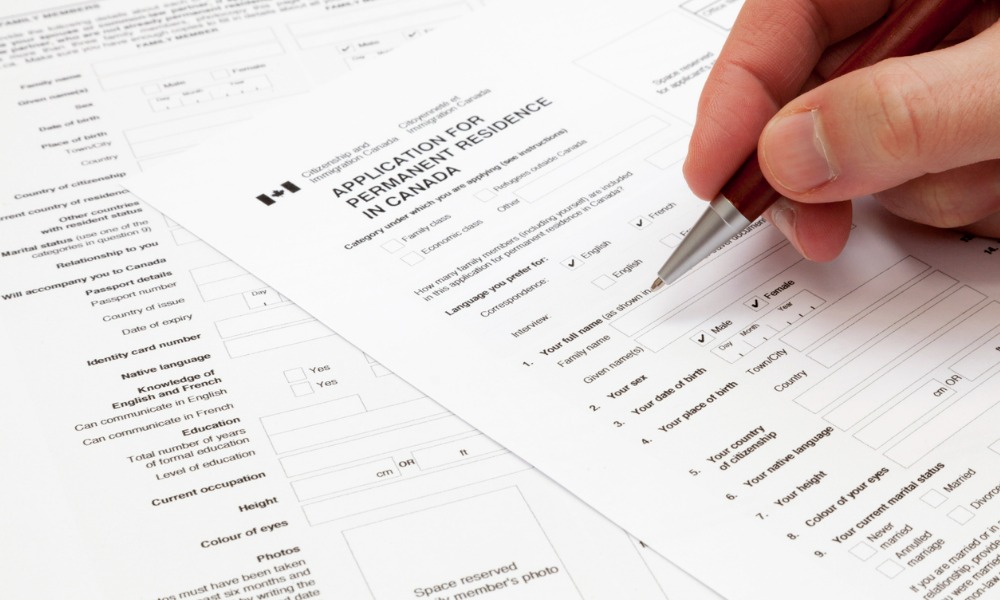Officer erred by affording conditions in Iraq little weight in their hardship analysis: court

The Federal Court has overturned a senior immigration officer’s decision to refuse permanent residence to an Iraqi man who his family had allegedly threatened for pursuing a romantic relationship with a Peruvian woman.
In Ibrahim v. Canada (Citizenship and Immigration), 2022 FC 1194, the applicant is Kurdish and an Iraqi citizen. While studying in the US, he entered a romantic relationship with a Peruvian woman. When his “conservative” Muslim family learned of the relationship, the applicant claimed that his father and brother threatened to kill him.
As his student status in the US was about to end and given the Trump administration’s policies on Muslim countries, the applicant entered Canada and applied for permanent residence. He based his application on humanitarian and compassionate (H&C) grounds under the Immigration and Refugee Protection Act (IRPA).
The senior immigration officer denied the application. In their hardship analysis, the officer accepted that Iraq was plagued with violence, so the applicant would experience some hardship upon return. However, since Canada currently has a temporary stay of removal (TSR) in place for Iraq, the officer concluded that refusing the applicant’s H&C application would not result in his removal from Canada.
Moreover, the officer did not grant the applicant a temporary resident permit, finding that there was no urgent need for the applicant’s presence in Canada. The applicant then applied with the Federal Court for a judicial review of the officer’s decision.
The Federal Court set aside the officer’s decision and remitted the matter to another immigration officer for redetermination.
The applicant argued that the officer erred in their hardship analysis by affording little weight to hardship grounds because he was not facing imminent removal due to the TSR in place for Iraq. He based this argument on previous Federal Court decisions, including Bawazir v Canada (Citizenship and Immigration) and Omar v Canada (Citizenship and Immigration).
The court agreed with the applicant that his situation is like Bawazir. In Bawazir, the officer found that while the situation in Yemen was dire, it had little to no impact on the applicant’s circumstances for as long as the TSR remained in place. Justice John Norris, however, ruled that the officer erred in giving the dire situation in Yemen little weight when conducting the H&C balancing.
“Similarly, in Omar, the officer noted the adverse country conditions in Somalia but assigned them little weight because a [TSR] prevented the applicant from being removed there,” Justice Cecily Strickland wrote. “In my view, there is similarly no basis upon which to distinguish the facts from those in Bawazir and Omar.”
The Federal Court determined the real issue at hand − as was the case in Bawazir and Omar – is whether, due to the current conditions in the home country of the applicant where a TSR is in place, it would be a hardship for the applicant to return there to apply for permanent residence, such that an exemption under s. 25(1) of the IRPA would be warranted.
“In sum, I agree with the applicant that the officer erred by affording the country conditions in Iraq little weight in their hardship analysis, in part, on the basis that the TSR currently prevents the applicant from being removed to that country,” Justice Strickland wrote.
According to the court, the error arose because the officer failed to engage with the applicant’s submission that he would have no choice but to leave Canada and return to Iraq to apply for permanent residence.
“Had the officer done so, this would have required the officer to consider whether the return to Iraq in that event warranted H&C relief under s. 25(1) of the IRPA, especially in light of their finding that Iraq has been plagued with violence and is a country with a volatile security situation,” Justice Strickland wrote.










